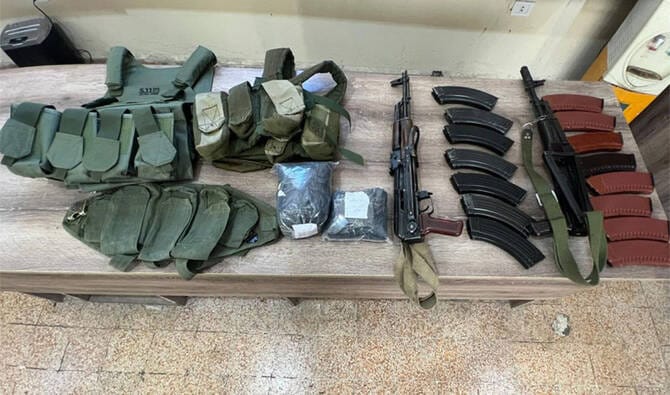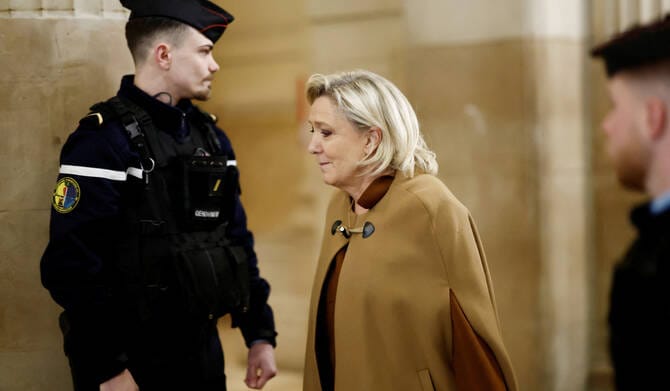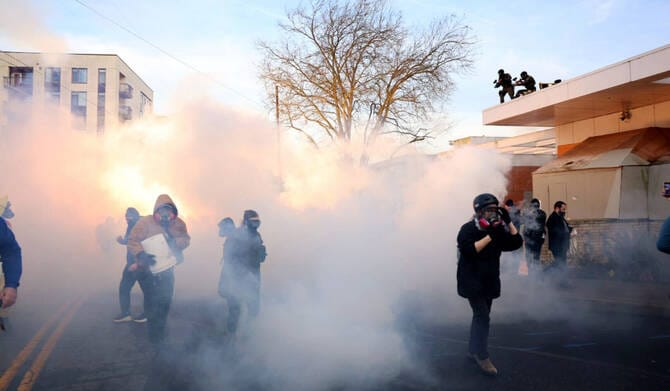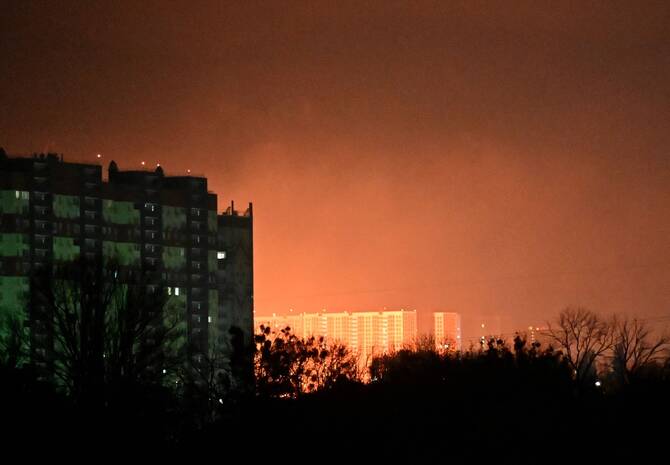Lebanon’s parliament on Thursday approved an amendment to the law that aims to curb celebratory gunfire by doubling the penalties for those who fire shots into the air.
The new law imposes stricter penalties for individuals involved in actions that have led to numerous injuries and fatalities in recent years.
The action comes after Lebanese Army Command announced the arrest of eight people as part of efforts to identify those who fired gunshots during last Sunday’s municipal elections in the North Lebanon and Akkar governorates.
Army units, with support from a Directorate of Intelligence patrol, raided the homes of several suspects and seized weapons and ammunition they possessed.
The skies over the North and Akkar governorates were illuminated last Sunday night by gunfire, celebrating candidates’ victories in the municipal elections, where local families traditionally compete for seats on the city councils that govern their affairs.
The celebratory gunfire caused injury to a young man, Mohammed Jihad Khaled, from the town of Ain Al-Dahab in Akkar.
He is still fighting for his life after a bullet struck his head.
He remains in a coma after being moved to the intensive care unit of a hospital.
Journalist Nada Andraos was also injured by celebratory gunfire, as a bullet struck her leg after piercing the car she was in while covering the elections with her team from the Lebanese Broadcasting Corporation International.
Andraos, who seemed stunned by the incident — especially since the bullet could have struck her head instead of her leg — commented on social media: “In Lebanon, a stray bullet represents the value of life.”
Victims’ families often file lawsuits in court and with security agencies against unidentified people.
Many offenders escape punishment, leading to repeated tragedies where celebratory gunfire accompanies even minor school achievements.
The law prohibiting the firing of firearms into the air specifies that if such actions lead to a person’s illness or incapacity that causes them to miss work for fewer than 10 days, the offender will face a prison sentence of nine months to three years, in addition to a fine ranging from 10 to 15 times the official minimum wage.
MP Wadah Al-Sadiq said that the amendment had increased the penalty duration.
Previously, the penalty ranged from six months to three years; now it begins at one year in prison and can go up to six years.
The final decision will be made by the judge who issues the ruling.
Information Minister Paul Morcos, an international human rights defender, welcomed the amendment.
It serves as an additional deterrent, moving toward prohibiting such practices and ensuring accountability for perpetrators, he said.
Lawyer Imad Al-Masri, who specializes in criminal cases, said: “Any individual who discharges firearms or fireworks in populated areas or in the presence of a crowd, regardless of whether their firearm is licensed, will face a prison sentence of six months to three years.
“Additionally, they will incur a fine ranging from eight to 15 times the official minimum wage.
“The weapon shall be confiscated in all cases, and the perpetrator shall be referred to the military court for trial.”
Al-Masri said that the military court imposes penalties on individuals who fire bullets into the air, ranging from fines to prison sentences of six months to two years.
A judicial source said that the military court has numerous cases related to firing into the air. These offenses are punishable by law and escalate from a misdemeanor to a felony if the shooting results in casualties.
Al-Masri said: “Increasing the penalty is a deterrent if it is accompanied by strict prior measures and the enforcement of immediate prosecution and, most importantly, changing social behavior regarding this dangerous practice.”
Riots continued for a second day in Roumieh Prison, Lebanon’s largest prison, coinciding with the parliamentary session.
Inmates are demanding the approval of a general amnesty law and a reduction in their imprisonment period.
Tensions ran high among both convicts and detainees, some of whom hung symbolic gallows inside their cells as a form of protest.
Lawyer Rabih Qais, the program manager at the Lebanese Foundation for Permanent Civil Peace and a longtime observer of prison affairs, said: “The law proposal submitted by several MPs addresses the issue of delayed trials for detainees.
“Many of these people have spent years in prison, even though the sentences they might receive if tried could be significantly shorter than the time they have already served.”
Qais said Lebanon “evaluates every decision through the lens of sectarian power-sharing.
“As a result, many of those advocating for amnesty are Islamists and individuals from the Baalbek-Hermel region, many of whom are facing in absentia arrest warrants related to clashes with security forces or drug-related offenses.
“This may explain why the draft amnesty law was sent to parliamentary committees. However, what is truly needed is justice for the oppressed.”





